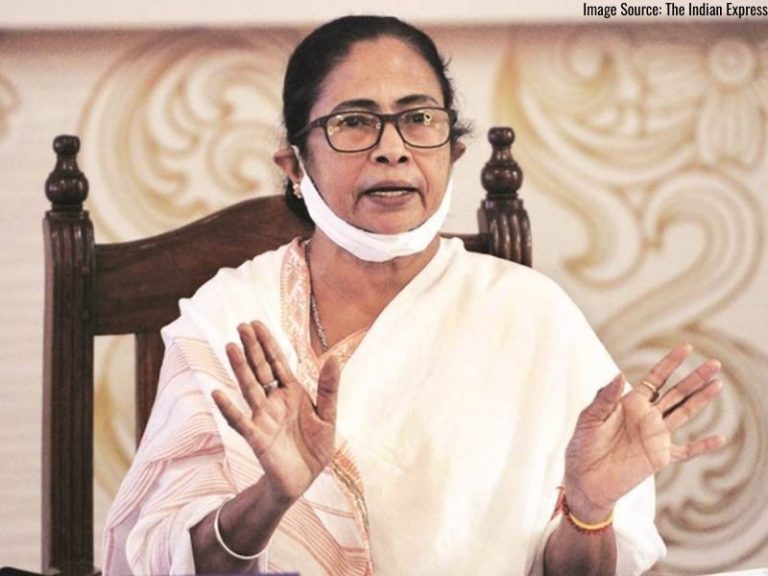No products in the cart.
West Bengal: Brick Start
 Baishali Mukherjee (Kolkata)
Baishali Mukherjee (Kolkata)
Notwithstanding a large shadow cast by the National Human Rights Commission (NHRC) which after probing incidents of post-poll violence following re-election for a third term of the ruling Trinamool Congress (TMC) in May, has recommended a Central Bureau of Investigation (CBI) probe to the Calcutta high court, chief minister Mamata Banerjee remains unfazed. Even though the seven-member NHRC, constituted following a high court order of June 18, has slammed the newly-elected TMC government for sounding “a death knell” for democracy and remarked that “the situation in the state of West Bengal is a manifestation of ruler, instead of rule of law,” Banerjee has dismissed the commission’s report as biased and exaggerated. She blames cadres of the CPM (Communist Party of India-Marxist) which ruled West Bengal uninterruptedly for 34 years (1977-2011), for establishing a tradition of violence after every election.
Be that as it may, buoyed by the massive mandate awarded to TMC by the West Bengal electorate despite the BJP having repeatedly deployed its election-winning heavyweights — prime minister Narendra Modi and Union home minister Amit Shah — to campaign rallies in the state, Banerjee has set about implementing the TMC’s poll promises.
These include duare ration, to deliver food rations to people’s doorsteps; lokkhir bhandar, which provides Rs.6,000 per year as support payment to SC/ST households; and duare tran, as relief payments to victims of cyclone Yaas which hit West Bengal in May. Moreover, post-election surveys indicate that the TMC 3.0 government’s initiatives in education — especially a May 10 announcement to establish English-medium schools in 341 admin blocks statewide, and a June 21 announcement to appoint 32,000 teachers in upper primary and primary schools by March next year — have resonated with the electorate. On June 26, Banerjee announced establishment of six new medical colleges in Hooghly, Howrah, North 24 parganas, East Midnapore, Jahjargram and Jalpaiguri districts, subject to clearance by the National Medical Commission (NMC).
Moreover on June 30, Banerjee announced the launch of India’s first credit card for students with an upper limit of Rs.10 lakh to fulfil one of her key pre-election promises. The card empowers any student — from class X to up to 40 years of age — who has lived in Bengal for ten years, to get a loan for higher studies in India or abroad. “No guarantor is needed for this loan. The state government will stand guarantee. Henceforth, students need not run from pillar to post for education loans. I hope this loan will help students fulfil their dreams,” Banerjee told reporters at a virtual press conference.
Under the students’ credit card scheme, the loan amount can be utilised for undergraduate, postgraduate, doctoral and post-doctoral study in India or abroad. It can also be availed for paying the fees of tutorial institutes preparing students for competitive exams, hostel fees, books, study material, computers and laptops with loanees given a 15 years’ time window to repay the loan at a subsidised interest rate of 4 percent with the state government paying the remaining interest to banks directly. According to government sources, annual expenditure for the scheme is budgeted at Rs.5,000 crore. A senior official of the state government’s finance ministry reveals that 26,600 applications for the credit card including 9,700 from women students were received by July 13.
Political pundits in West Bengal believe that after her decisive three-in-a-row victory in this summer’s assembly election, Banerjee is all set to play a major role in national politics.
Already, she has become more visible on the national stage repeatedly speaking up on national issues – the prolonged farmers’ agitation near Delhi and the Pegasus spyware row in which she has urged the Supreme Court to take suo motu cognisance of government malfeasance, and her call to opposition parties to form a united front against the BJP. With General Election 2024 looming on the horizon, the stormy petrel chief minister of West Bengal may well emerge a key player in a mahagathbandhan — mega coalition — that is crystallising to take on the BJP juggernaut. Unless the long arm of the law stops her.
Also Read: Winning education card






 Baishali Mukherjee (Kolkata)
Baishali Mukherjee (Kolkata)








Add comment